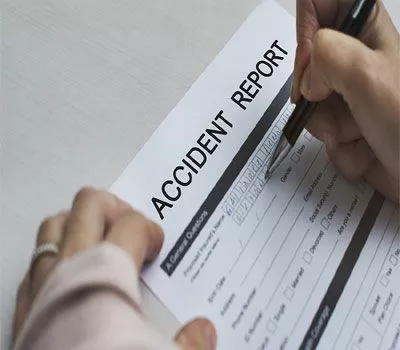DOT-Recordable Accident Criteria
Several factors may require that an accident be reported to the Department of Transportation (DOT). Federal regulations stipulate that a crash involving a commercial vehicle should be reported to the DOT in the following circumstances:
- A person is severely injured and must immediately leave the site for medical treatment
- Someone died in the crash
- At least one vehicle involved must be towed away from the scene of the accident
According to the Federal Motor Carrier Safety Administration (FMCSA), the accident report must document:
- The date of the crash
- The location of the accident, including the closest city or town
- The names of the drivers involved
- The number of people injured or killed in the accident
- Whether any harmful substance, other than fuel, was spilled or released
The FMCSA uses comprehensive crash data to track and monitor auto carriers and their drivers. The FMCSA may use collision reports to determine whether it is safe for automobile carriers or commercial drivers and other drivers to continue to operate their vehicles on the road.
Were You Hurt in An Accident?
If you are injured in an 18 Wheeler Accident or any other crash involving a commercial motor vehicle, the responsible party may owe you compensation. Depending on the circumstances, you may be able to hold the following people responsible:
- Drivers of commercial vehicles
- A business that employs the commercial vehicle driver involved in the crash
- Negligent mechanics or component manufacturers
- Negligent municipalities
- Other negligent parties who might have been responsible for the crash
DOT accident reports may be used in your case as proof of a party’s negligence. Other types of evidence may include:
- Police reports
- Photograph, video, or dash camera footage of the scene
- Witness statements
- Your medical records
- Reconstruction data testimonials
Recoverable Damages
Depending on the nature of the crash, the injuries that you incurred, and the personal injury laws that govern the state in which you plan to file a claim, recoverable damages in the incident may include:
- Ambulance expenses and emergency medical treatment that you receive as a result of the DOT reportable accident
- Current and future costs associated with accident-related medical care, treatment, and medication
- Loss of wages, if you are unable to work as a result of the injury
- Loss of property
- Loss of earning potential
- Pain and suffering
- Disability
If your loved one is killed in a commercial vehicle accident, you may be able to pursue a negligent death lawsuit, as well.
What Happens After the Trucking Company Reports the Accident to the DOT?
Commercial carriers are required to maintain DOT-recordable accident records. The DOT can use this information to estimate the number of truck accidents that occur involving commercial vehicles, drivers, or trucking companies per million miles traveled in the past three years.

If the carrier exceeds the allowed accident rate threshold, it may face penalties. The DOT can calculate the threshold by multiplying the number of accidents by 1 million and then dividing it by the number of miles the carrier has driven in the past 12 months. The DOT also includes drunken-driving incidents, safety violations, and other factors in its calculations. The final number will serve as the security level of the public carrier.
If the carrier’s safety rating equals more than 1.5 accidents per million miles, the company may receive an unsatisfactory label, resulting in a rating increase of 2 or more points. An overall unsatisfactory rating can result in restrictions on the company, such as the inability to transport hazardous materials or transport 16 or more passengers.
The pending unsatisfactory conditional rating allows the company to correct its problems within a 45-day window before the rating becomes effective. If the carrier disagrees with the rating, it has the right to request a review.
Why Is the Significance of A DOT-Reportable Accident?
The DOT keeps track of serious incidents to determine your company’s level of security: satisfied, conditional, or dissatisfied. During the audit, the DOT uses formulas to calculate the number of recordable accidents per million miles for your business in the past year.
The number of DOT-recordable accidents is the total number for your business company, and the total mileage driven in the last 12 months is the total mileage of all your drivers. If the final number is higher than 1.5, your business will receive a “conditional” security rating. If you have other records of security breaches, you may be downgraded to “dissatisfied.”
A San Antonio car accident lawyer who handles commercial vehicle accidents can represent you in a personal injury case or a wrongful death lawsuit if you find yourself in that situation. This can give you the time and space you need to heal while the legal professional seeks compensation on your behalf.